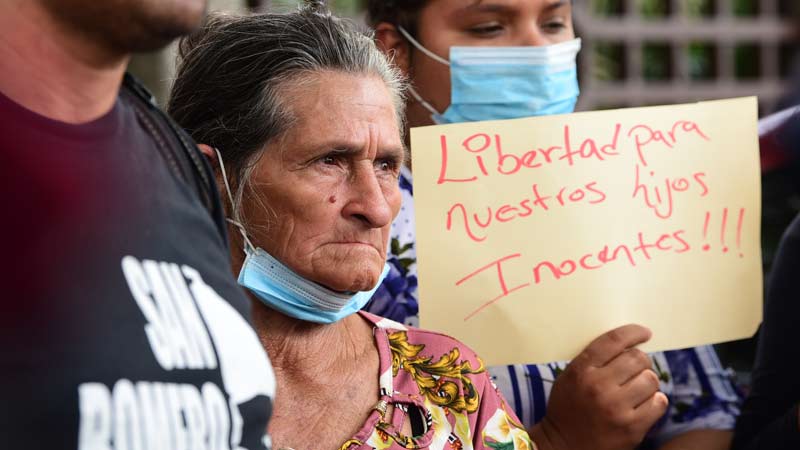A joint expedition of Chilean and Argentine scientists has discovered the remains of a 148 million-year-old prehistoric crocodile skeleton in the mountain range. Patagonia From southern Chile, one of the few crocodiles that inhabited the mainland besides dinosaurs.
This new, hitherto unknown species was discovered on an expedition in 2014 in the Chilean Aysén region, and was recently published in the prestigious journal Scientific Reports from the group nature After years of searching.
(You may be interested: Scientists have created the first genetically modified marsupial)
baptized in the name of Burkesuchus mallingrandensisThe specimen occupied a key place in the history of crocodiles, as evidenced by its skull structure and hind legs, and could be considered the ancestor of modern crocodiles, Chile said in a statement. Andres Bello UniversityOne of the centers that participated in the research.
The discovery was made near the Malin Grande enclave, where there are fossil deposits of Jurassic reptiles that are about 148 million years old. In that place, already in 2004 the remains of a herbivorous dinosaur were found Chilesaurus diegosuarezi, which has encouraged many explorations in this region, led by researchers from Andrés Bello University and the Laboratory of Comparative Anatomy and Vertebrate Evolution (LACEV) at the Argentine Museum of Natural Sciences “Bernardino Rivadavia”.
Read also: Treasure trove of Jurassic marine fossils unearthed in English quarry
Crocodiles appeared at the beginning of the Jurassic period, about the same rate as the first dinosaurs, and within a few million years they had invaded the marine environment, becoming large predators of fish and other aquatic creatures. Fernando Novas, a researcher at the National Council for Scientific and Technical Research (Conicet) in Argentina and president of LACEV, said global knowledge about crocodiles that live on land is still scarce.
“The Jurassic crocodiles that inhabited the mainland were no larger than a house cat, and unlike their fearsome marine cousins, their diet was based on small invertebrates. We knew nothing about South america From those little crocodiles that used to live in ponds and lakes until we found the remains of a Burkesox.”
The study of skeletal remains showed that when he lived, he was Burkesuchus mallingrandensis It was the size of a lizard and did not exceed 70 cm in length. He walked on all fours, which had an intermediate position between that of the vertical of the ancestors of crocodiles and live crocodiles, and which turned outward more.
Its neck, back and tail were covered with a double row of protective bony plates, superimposed in a similar fashion to a roof. “Despite the fact that its jaw and teeth have not been preserved, the kinship relations of Burkesuchus lead us to assume that it was a predator of small animals, possibly invertebrates, and that it would hunt on the shores of the lakes in which it lived,” Novas said. .
(See: Mars has been confirmed to have a liquid and metallic core)
The young Burkesuchus is found within the evolutionary crocodile tree, very close to the common ancestor of Neosuchia (“new crocodiles”), that is, crocodiles living today. “Burkesuchus tells us about the origins of modern crocodiles and how, 150 million years ago, they began to modify their anatomy, adopting the amphibian lifestyle,” said Federico Agnolín, a researcher at LACEV.
Burkesuchus was part of a reptile fauna that included, in addition to the three-meter Chilesaurus, large, long-necked dinosaurs, relatives of Diplodocus and huge herbivorous titanosaurs. The name with which he was christened means “Burke’s Crocodile of Malen Grande”, chosen in honor of the American Colman Burke (1941-2020), a Patagonian lover and enthusiast of paleontology, who supported numerous explorations, including the crocodile today bearing his name.

“Social media evangelist. Student. Reader. Troublemaker. Typical introvert.”



:quality(85)/cloudfront-us-east-1.images.arcpublishing.com/infobae/Z3MJ3ZNWSVDIBDDBSLX7TZMLJI.jpeg)
:quality(85)/cloudfront-us-east-1.images.arcpublishing.com/infobae/43LOY2A5JVFEPFUQ5PJJIFVG2Q.jpg)


More Stories
What is the best exercise to lose weight
Family and education are the two pillars that help achieve the emotional well-being of children and young people
The Science Minister accepted the inconsistencies in her CV